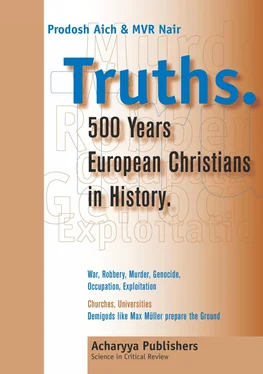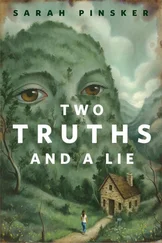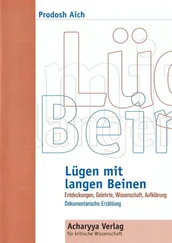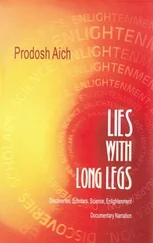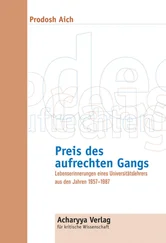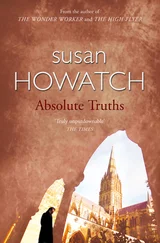Is it not a morbid atmosphere for children? This atmosphere will continue until Friedrich Maximilianbecomes 12 years old. Thereafter he will be sent to a school at Leipzig. How he fares in the school in Dessau? There are no significant indications. Friedrich Maximilianenters the “Gymnasium” (High School) at Dessau when he is six years old. “Gymnasiums” then had 13 classes.
Georgina Max Müllerreports (p. 6) in her book: “His school reports were not remarkable, and certainly at that time he gave little evidence of the power that was in him. ‘Writing bad’ was the almost invariable report, and in later years he often lamented the small pains taken by the writing master to improve it.”
We do not know more about the real child-life of Friedrich Maximilianat Dessau that constituted his basic personality. We assume, poverty and his migraine have played an important role in his basic personality, in his childhood and in his early school days.
A lot has been published on “ Max Müller” later. His biographers, including his wife, Georgina Max Müller, and his son, W. G. Max Müller, have totally left out the background that constituted his basic personality. It has even been totally ignored that there is the chapter twoin the “My Autobiography” which is titled “Childhood at Dessau” , p. 45 – 94. There we read in the pages 65 ff memorizing the school life of Friedrich Maximilianat Dessau:
“I remember a number of small events in my school-life at Dessau ... The influence which music exercised on my mind ... My work at school and at home was not too heavy; I was fond of it and very fond of books. ... Paper was so dear that one had to be very sparing in its use. Every margin and cover was scribbled over before it was thrown away, and I fest often so happened by the scarcity of paper that I gladly accepted a set of copybooks instead of any other present that I might have asked for on my birthday or at Christmas. I am sorry to say I have had to suffer all my life from the inefficiency of our writing master or may be from the fact that my thoughts were too quick for my pen. In other subjects I did well, but though I was among the first in each class, I was by no means cleverer than other boys. ... I feel sure I could have done a great deal more at school than I did, but it was partly my music and partly my incessant headaches that interfered with my school work. ... I was fortunate at school. I could hold my own with the boys, and as to the masters, several of them had known my father or had been his pupils, and they took a personal interest in me. I remember more particularly one young master who was very kind to me, and took me home for private lessons and for giving me some good advice.”
There is not much more about Friedrich Maximilian’s real childhood in the chapter “Childhood at Dessau” . Information on his childhood and on his school life at Dessau is unsystematically touched in this chapter now and then. This scattered information is packed between Max Müller’s uncalled for reflections on “God and the world” ; on the Jews in Anhalt-Dessau and on persons, he met during the years of his life that have nothing to do with Friedrich Maximilian’s “Childhood at Dessau” . It is an unsystematic narration full of phantasm than an autobiography describing his childhood. We have taken a note of this aspect in his writings in “My Autobiography” and the volumes of “Auld Lang Syne”and we shall keep our eyes wide open.
We put together the scattered information in pages chronologically. Max Müllerremembers Friedrich Maximilian’s school days in his autobiography (p. 62–63):
“At school our religious teaching was chiefly historical and moral. ... Some, by no means all, children of Roman Catholic and Jewish parents were allowed to be absent from religious lessons. ... If Jews or Roman Catholics wished for any special religious instructions it was given by their own priests or Rabbis, and was given without any interference on the part of the Government. ... Thus we grew up from our earliest youth, being taught to look upon Christianity as an historical fact, on Christ and on His disciples as historical characters, on the Old and New Testaments as real historical books. Though we did not understand as yet the deeper meaning of Christ and of His words, we had at least nothing to unlearn in later times ...“
His memories of the childhood of Friedrich Maximilianwritten a little before he will die are yet remarkable. We find on pages 67-69 of his autobiography:
“A large number of Jews had been received at Dessau by a former duke; ...he stipulated that they should only settle in certain streets. These streets were by no means the worst streets of the town; on the contrary, they showed greater comfort and hardly any of the squalor which disgraced the Jewish quarters in other towns in Germany. As children we were brought up without any prejudice against the Jews, though we had, no doubt, a certain feeling that they were tolerated only, and were not quite on the same level with ourselves. We also felt the religious difficulty sometimes very strongly. Were the Jews not the murderers of Christ? And had they not said: ‘the blood be on us and on our children’? ...I knew several Jewish families, and received much kindness from them as a boy. Many of these families were wealthy, but they never displayed their wealth, and in consequence excited no envy. All that is changed now. The children of the Jews who formerly lived in a very quiet style at Dessau, now occupy the best houses, indulge in most expensive tastes, and try in every way to outshine their non-Jewish neighbours. They buy themselves, and, when they can, stipulate for stars and orders as rewards for successful financial operations, carried out with the money of princely personages. Hence the revulsion of feeling all over Germany, or what is called Anti-Semitism, which has assumed not only a social, but also a political significance. I doubt whether there is anything religious in it, as there was when we were boys. ...One cannot blame the Jews or any other speculator for using their opportunities, but they must not complain either if they excite envy, and if that envy assumes in the end a dangerous character.”
On page 77 ff we read:
“The very idea of death never came near me till my grandfather died (1835), but even then I was only about twelve years old, and though I had seen much of him, particularly during the years that my mother lived again in his house, yet he was too old to take much share in his grandchildren’s amusements. ...He made no secret that he cared more for the son of his son who was the heir, and was to perpetuate the name of Basedow, than for the son of his daughter.”
As indicated earlier Adelheidis keen maintaining her social duties. She sends her children to visit both families. She does not visit them. What Max Müllerlets us know in the following sub-sentence is puzzling: “particularly during the years that my mother lived again in his house” . We keep this small puzzle in mind.
When Friedrich Maximilanhas just passed twelve, Adelheidsends him to one Professor Carusat Leipzig, a friend of late Wilhelm Müller. It seems, Adelheidloses control over him and feels that he needed the guidance of a male authority. So it is handed-down. Professor Carusadmits him to the best school at Leipzig. His son Victoris of the same age and visits the same school. We turn again to Max Müller‘s autobiography, to the chapter “Childhood at Dessau” , p. 79:
Читать дальше
